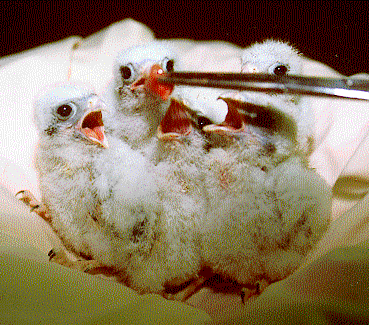Texas Parks and Wildlife biologists advise that it is often best to leave wild animals alone. Spend time observing the wild animal from a distance in order to determine whether an animal is truly injured or orphaned. Staying too close may deter the mother from returning, so be sure to practice your social distancing skills. By interfering too soon, you may do more harm than good.
Deer fawning season begins in early to mid-May. A newborn fawn’s mottled coat and mother’s care usually hides them from predators. But as fawns mature, they shed these coats for a more adult color which causes them to catch the eye. With mothers leaving fawns for hours at a time, you may spot one lying alone in tall grass or in a brushy area. Well-meaning people sometimes pick up these fawns, thinking that they have been abandoned by their mothers and need help. This is rarely the case. Use this rule of thumb for young birds, who might be out of their nests but cannot fly. If the bird’s eyes are open, it has a coat of feathers and is hopping around, it is probably fine. Grounded fledglings will usually be up and flying within a few days. If an animal is obviously injured, sick or orphaned, you may attempt to reach a permitted wildlife rehabilitator.
Texas Parks and Wildlife has made available a list of permitted wildlife rehabilitators in the state of Texas for your use should you find a wild animal in need of assistance. The names are arranged according to location (county level). We recommend you check not only your own county but also any adjacent counties when trying to find help for an animal — Wildlife Rehabilitator By County.
Most wildlife rehabilitators work out of their homes, and volunteer their time. No state funding is available for animal caging, veterinary care, medicine or food. For this reason, most rehabilitators depend greatly upon donations from the public to help defray the costs associated with rehabilitating injured wildlife. Remember, wildlife rehabilitators are volunteers.

Please note that TPWD staff advise the general public not to handle or attempt to transport injured, sick or orphaned wildlife. In order to possess or transport any indigenous wildlife in Texas, a permit is required by Texas law (PWC Chapter 43, Sec. 43.022).
Realize that you may not be able to contact a rehabilitator immediately. Wildlife rehabilitators are permitted to work on only the species named on their permits, so please keep in mind they will not be able help with species that are not named on their permits and may refer you elsewhere. They have jobs of their own, limited facilities and limited time. Many have listed specific hours of operation - try to respect their privacy and remember that they may be at work during the day. Even larger rehabilitation groups may not be able to get back to you for a while. Patience is often necessary when trying to secure help for injured or orphaned wildlife.
Please take some time to familiarize yourself about rabies and other life-threatening diseases wild animals carry. Wild animals can carry diseases that are transferrable to pets and humans, also known as zoonotic diseases. To learn more about zoonotic diseases in Texas, visit the Texas Department of State Health Services Zoonotic Health Topics webpage. Refer to the Infectious Disease Control Section’s webpage on Statewide Wild Animal Transport Restrictions for information on the Texas Rabies Quarantine.
If all else fails, you may be able to find a veterinary clinic willing to give immediate care. However the state will not reimburse animal hospitals for their costs, so someone will need to arrange to pay the bill. Most clinics are not equipped to take healthy orphans. Please recall, it is always best for wild animals to remain in the wild if at all possible. Above all, DO NOT attempt to care for injured or orphaned wildlife yourself. Attempts to care for injured or abandoned wildlife without the necessary training and supplies can be dangerous to you and the animals, and could result in a Class C Parks and Wildlife Code misdemeanor if done without the proper permit.